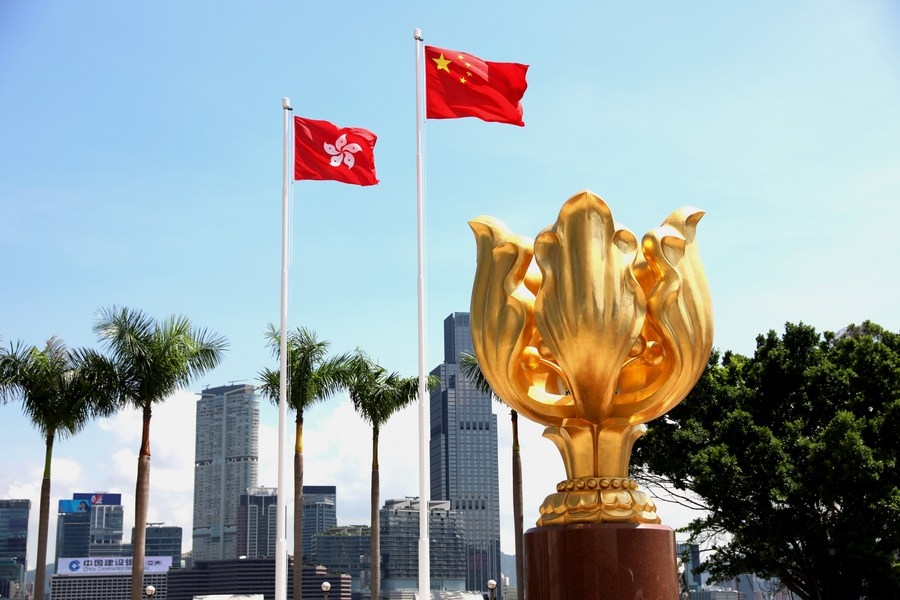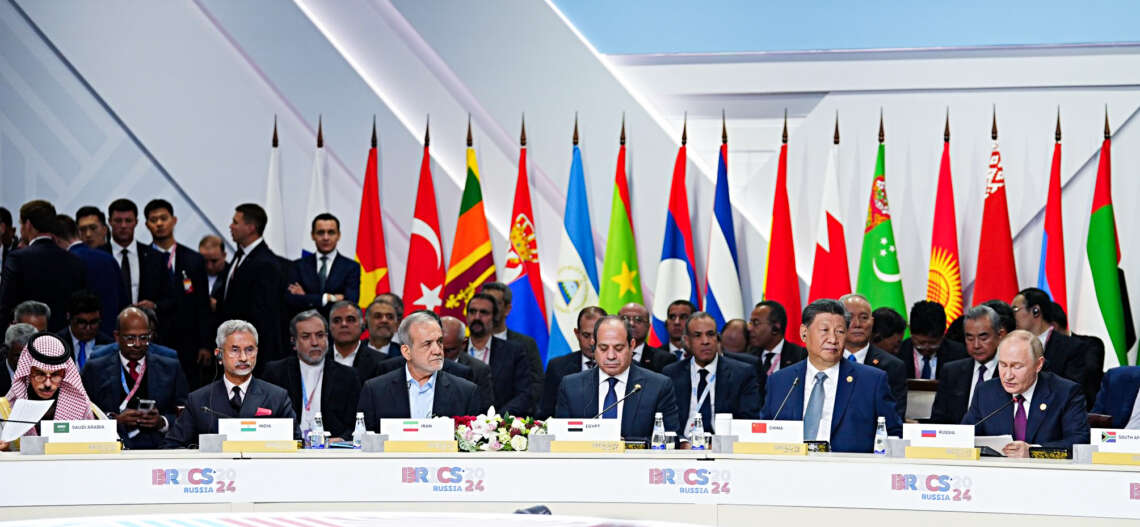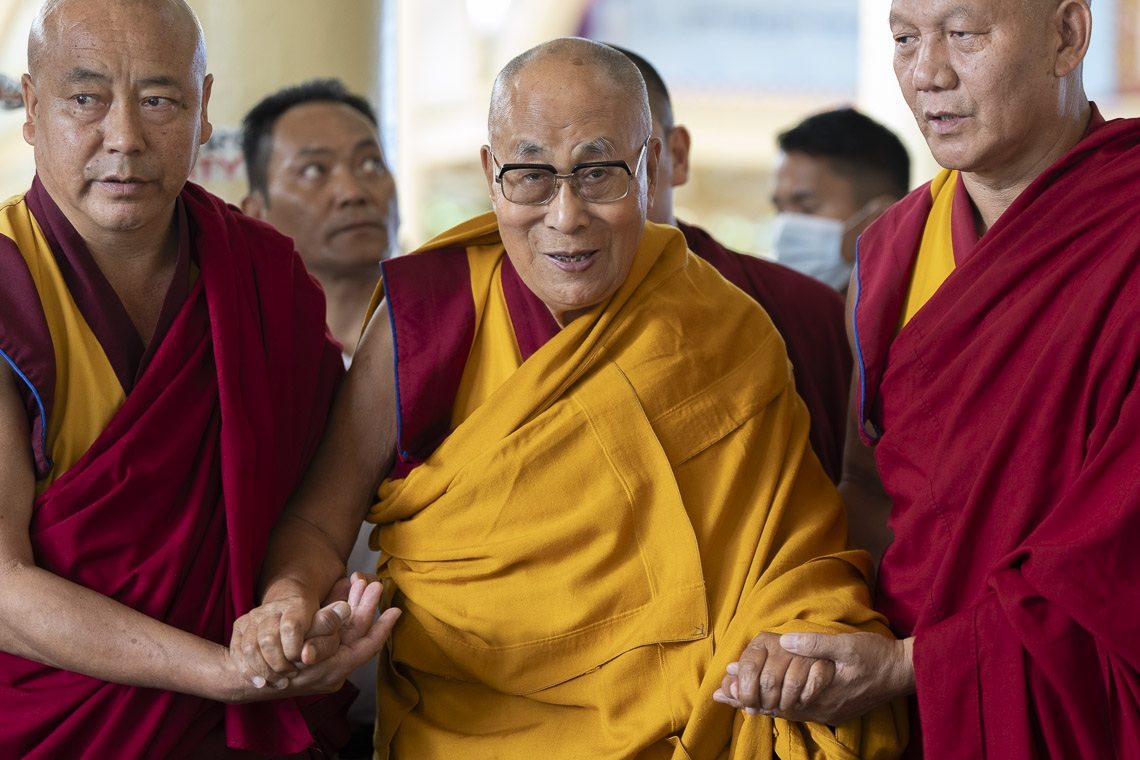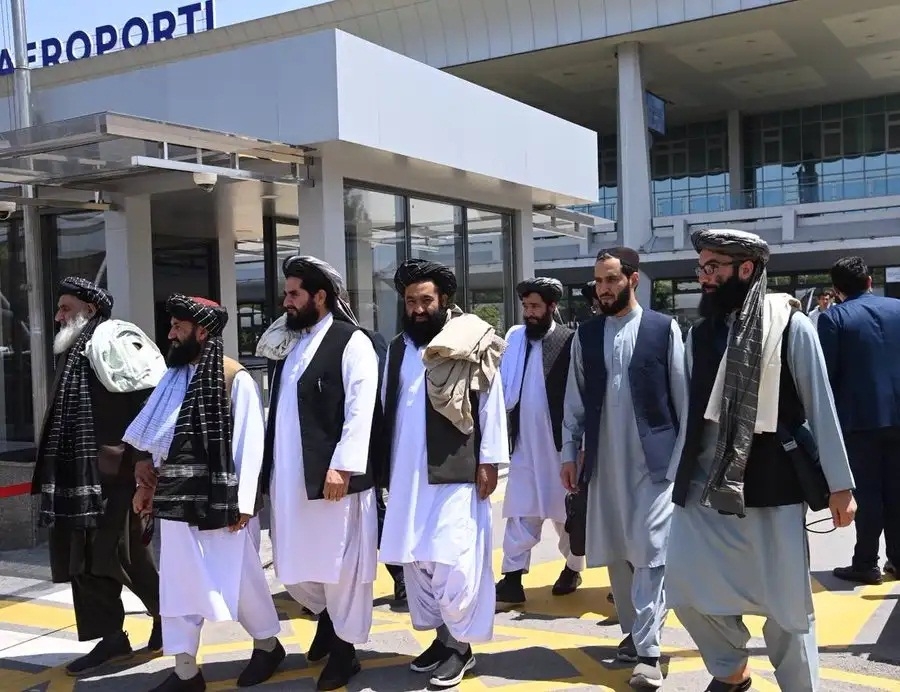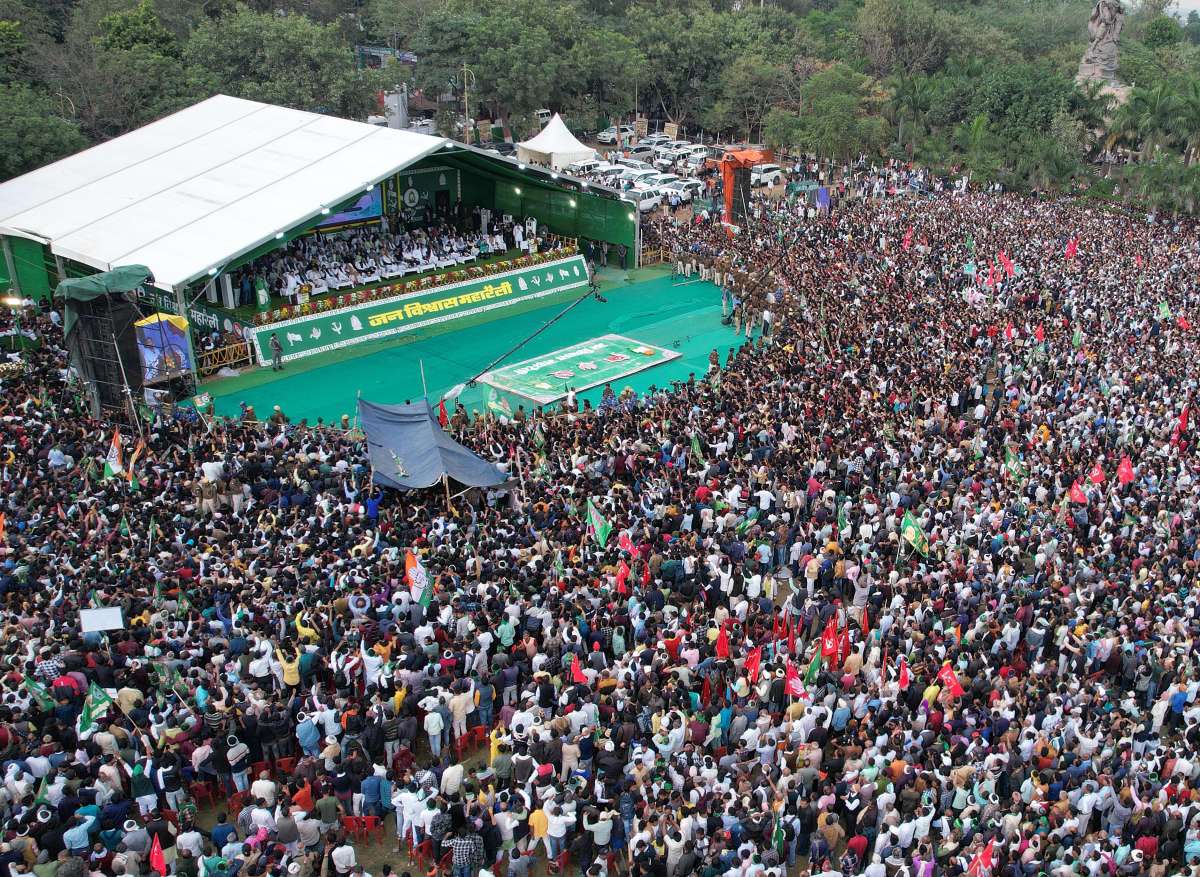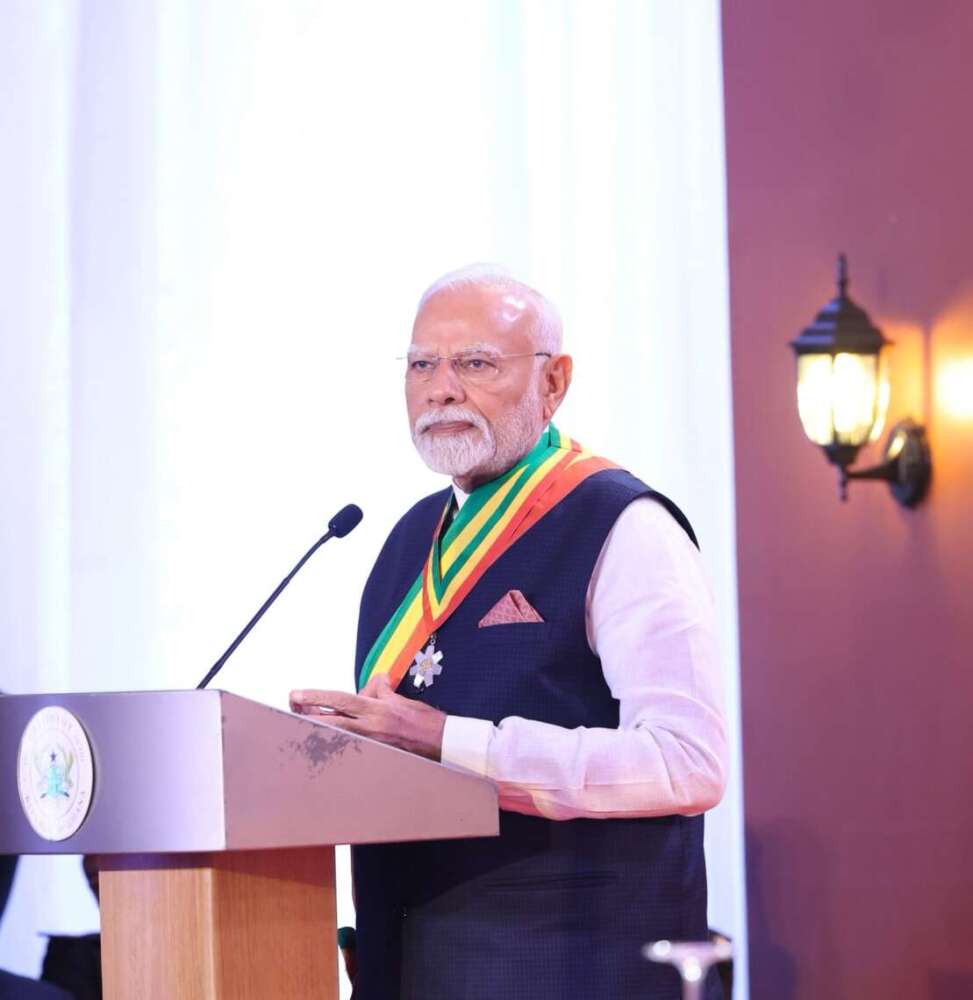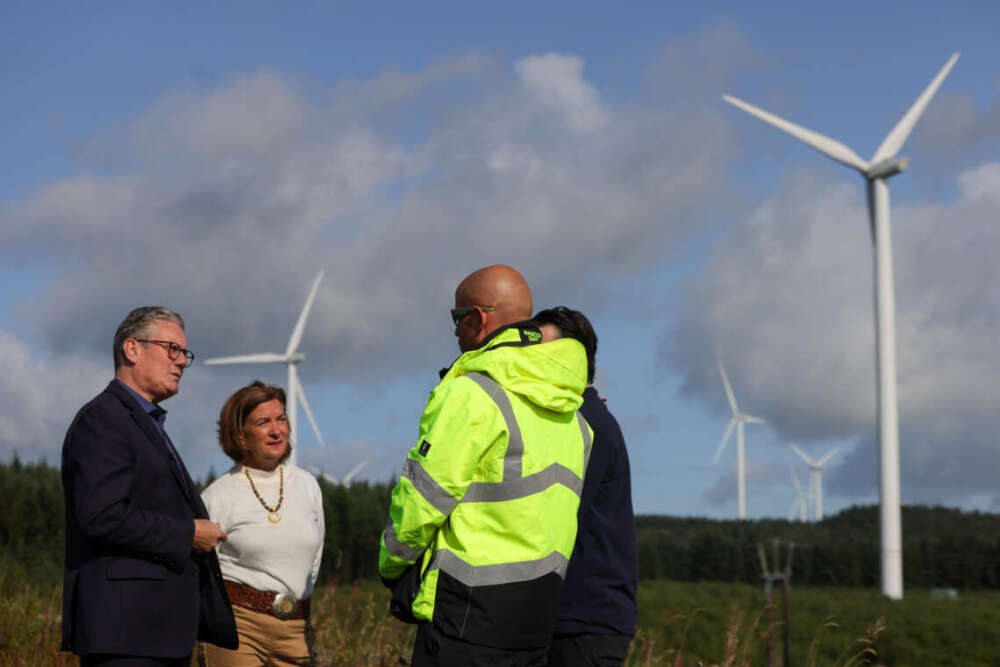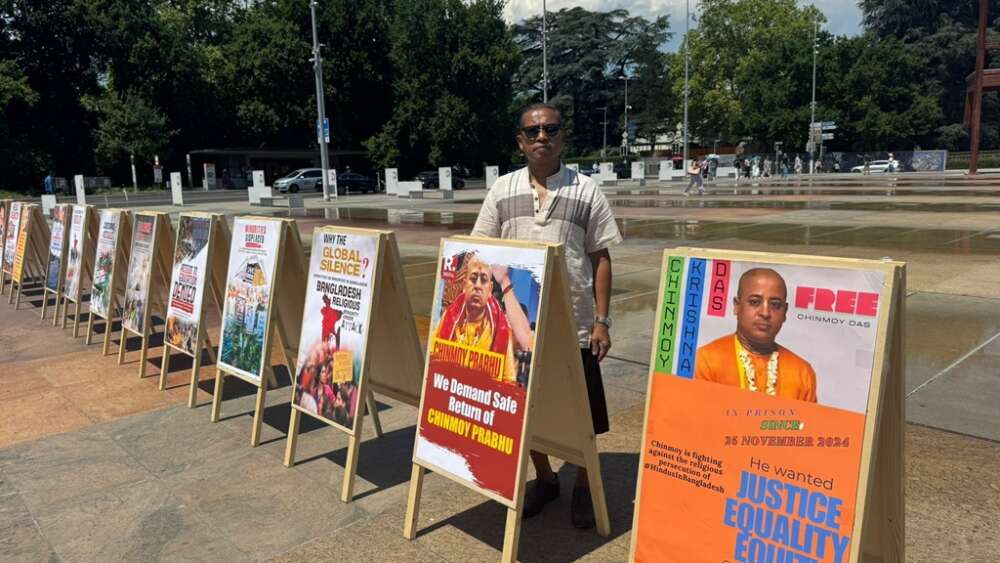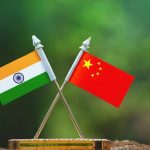The meetings, referred to as the “Two Sessions” or “lianghui”, traditionally offers a preview of the Chinese government’s policy agenda for the year….reports Asian Lite News
Thousands of Chinese political elites and lawmakers will gather in Beijing this week for annual legislative meetings as concern continues to mount over Beijing’s economy, national security and ambition of ‘reunification’ with Taiwan, Voice of America (VOA) reported.
The meetings, referred to as the “Two Sessions” or “lianghui”, traditionally offers a preview of the Chinese government’s policy agenda for the year.
It will start with the annual meeting of the Chinese People’s Political Consultative Conference on March 4 and will be followed by the annual legislative session of China’s rubber-stamp parliament on March 5, during which Chinese Premier Li Qiang will deliver his first government work report.
Some analysts are of the opinion that amid the economic downturn and political turbulence within the Chinese Communist Party over the last year, this year’s meetings will be highlighted by Beijing’s responses to the economic challenges, its possible emphasis on national security, and its rhetoric on cross-strait relations and possible personnel appointments.
“In the face of continuous economic difficulties, whether the [Chinese Communist Party] leadership is able to power through the two sessions and build some consensus within party ranks to come up with realistic policy targets will be an important benchmark for assessing the degree of centripetal forces in the party,” Wen-ti Sung, a political scientist at the Australian National University, told VOA.
Since scrapping its Zero-Covid strategy at the end of 2022, China has been facing various economic challenges, including property developers defaulting on debt, a historically high youth unemployment rate, low consumer and household confidence, and weak overseas demands.
After last year’s sluggish economic performance, 2024 began with Chinese shares sinking to a five-year low last month.
Two of China’s biggest and deeply indebted property developers — Evergrande and Country Garden — face even more challenges: One received liquidation orders, the other a liquidation petition, VOA reported.
Against this backdrop, some experts say Beijing is unlikely to roll out structural reforms to the economy during the Two Sessions.
“I’m skeptical about whether Beijing would move forward with more bold economic reform or not,” Dexter Roberts, director of China affairs at the University of Montana’s Mansfield Center, told VOA by phone.
While top Chinese officials have talked about the need for economic reform over the last decade, Roberts says China’s top leadership, particularly President Xi Jinping, “doesn’t believe in releasing control over the economy,” which is what China needs to address the persistent economic challenges.
Roberts and other analysts think Beijing will try to highlight two economic concepts that top Chinese officials, including Xi, have repeated over the last year: high-quality development and new productive forces, which refers to growth models that rely less on big stimulus measures and focus more on “innovation.”
“High-quality development is the byword for accepting lower growth while looking for new economic drivers such as new innovative technologies,” Roberts said. “I don’t expect them to roll out big stimulus measures during the Two Sessions.”
The Politburo, a top decision-making body, said it will rely on more fiscal instruments to support the sluggish economy. The 24-member political organ vowed to create a “stable, transparent and predictable policy environment” by strengthening fiscal policy and ensuring monetary policies remain “flexible, moderate and precise,” VOA reported.
Despite economic headwinds, Roberts said he expects China to set the 2024 economic growth target at 5 per cent.
“[Since] the 26 biggest cities [in China] have already set their 2024 economic growth targets slightly higher than 5 per cent, it’s a sign that the figure will also be around 5 per cent at the national level,” he said.
Some observers are also of the opinion that national security will remain an important theme of this year’s Two Sessions.
Earlier this week, members of the National People’s Congress Standing Committee passed revisions to the Law on Guarding State Secrets, which broadened the range of information that would be considered a national security risk, VOA reported.
“Xi has been pushing a governance model that prioritises national security, so while economic policies will be one of the main focuses of this year’s two sessions, the Chinese government will still mention security and coordinated development,” Wang Hsin-hsien, an expert on Chinese politics at National Chengchi University in Taiwan said.
He said China’s Ministry of State Security has become more involved in issues that may not be their primary focus over the last few months, suggesting a possible expansion of their power in recent years.
According to some analysts, security now overshadows other aspects of Chinese governance.
“Security is now prioritized over other issues, including economy and diplomacy,” Alfred Wu, an expert on Chinese politics at the National University of Singapore said.
Additionally, some observers say that during the Two Sessions, it will be important to pay attention to China’s stance and rhetoric on cross-strait relations since a new government will take office in Taiwan in May.
In recent months, Beijing has repeatedly characterized the president-elect as a “separatist” and vowed to “resolutely fight” efforts to pursue Taiwan independence.
“We need to pay attention to how the Chinese leadership talks about the Taiwan issue during the government work report and whether Beijing decides to revise the anti-secession law, which suggests the use of non-peaceful means against Taiwan,” Wang Hsin-hsien said.
He said that Beijing is unlikely to introduce new policy measures regarding cross-strait relations.
Some experts believe Beijing is also expected to appoint a new foreign minister during the two sessions since former Chinese Foreign Minister Qin Gang officially resigned as a lawmaker last week.
Liu Jianchao, the Chinese Communist Party’s international liaison, is widely expected to get the job.
Roberts, who described Liu as charismatic and speaking good English, said he is “the right person” to be the next Chinese foreign minister.
“[Since] Xi seems to have decided that China’s relationship with the US needs to improve, [Liu’s appointment] could be beneficial to US-China relations,” he said. (ANI)
ALSO READ: China Increases Grey Zone Tactics



